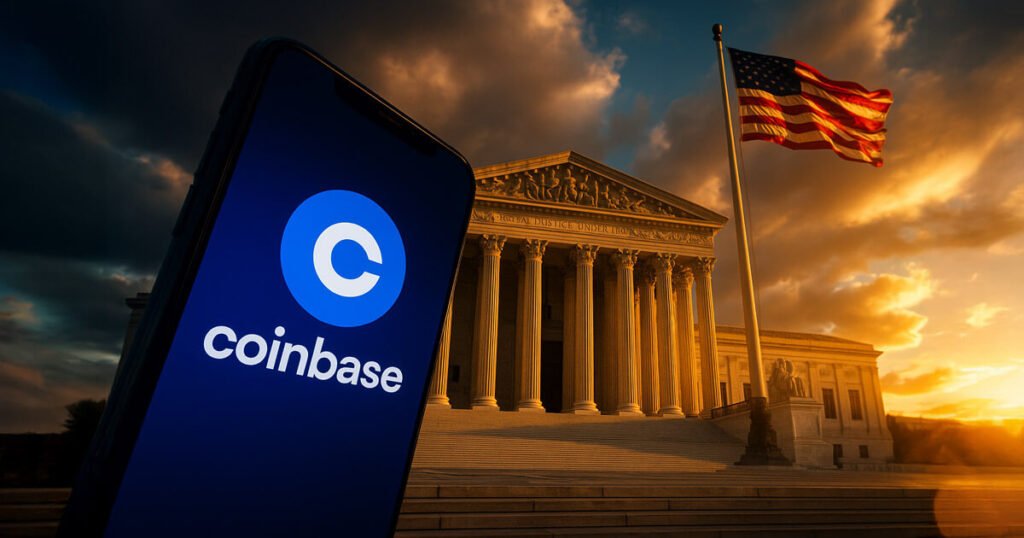Supreme Court Affirms IRS Authority to Access Cryptocurrency Exchange Data
Introduction
The United States Supreme Court has made a landmark decision by allowing a lower court ruling to stand, which grants the Internal Revenue Service (IRS) extensive authority to access customer data from cryptocurrency exchanges. This ruling comes from the case Harper v. Faulkender, where the petitioner argued against the constitutionality of the IRS obtaining user information from platforms like Coinbase without a warrant. The Supreme Court’s decision to deny a writ of certiorari marks a significant legal precedent and emphasizes the balance between privacy rights and regulatory oversight in the increasingly popular crypto market.
The Court’s Ruling: Implications for Users
The refusal of the Supreme Court to intervene signals that users of centralized exchanges like Coinbase do not enjoy the same level of privacy protection under the Fourth Amendment regarding their financial data. This amendment is designed to protect against unreasonable searches and usually requires a warrant for government access. However, the legal framework known as the "third-party doctrine" complicates this expectation. Users effectively relinquish some privacy rights when they share financial information with a centralized exchange, allowing the government to access these records with less stringent requirements like a subpoena. Consequently, if you engage in cryptocurrency trading on U.S. exchanges, your financial data may be subject to government scrutiny, even if your activities are entirely legal.
The Broader Effects on the Crypto Industry
The implications of this ruling may lead to shifts in user behavior within the cryptocurrency ecosystem. Many crypto users may now consider utilizing self-custody wallets or decentralized exchanges, which provide greater control over their private keys and data. The ruling indicates that U.S. authorities possess broad surveillance capabilities over centralized crypto businesses, thereby aligning digital assets more closely with traditional financial services. This could put added pressure on centralized exchanges to comply with extensive government data requests, which might deter privacy-conscious investors from using these platforms.
The Origin of the Case
The legal battle began in 2016 when the IRS issued a "John Doe" summons to Coinbase, seeking records from all users who executed transactions over $20,000 between 2013 and 2015. This move was part of the IRS’s broader initiative to combat perceived tax compliance issues among cryptocurrency users. The case gained traction through James Harper, a Coinbase user whose data was at stake. Harper argued that the IRS’s demand represented an "unreasonable search" under the Fourth Amendment. His claim was based on the idea that the summons constituted a fishing expedition, compelling Coinbase to hand over records without showing probable cause for specific individuals.
Lower Court Decisions: Upholding the IRS’s Authority
The U.S. Court of Appeals for the First Circuit ruled against Harper, affirming the IRS’s authority to access financial data from exchanges. The court’s decision heavily relied on the third-party doctrine, which posits that individuals have a reduced expectation of privacy for information shared with third parties. By using a service like Coinbase, customers essentially forfeited certain privacy protections. Additionally, legal justifications were rooted in a requirement for financial institutions to maintain records, further legitimizing the government’s access to this data.
The Final Outcome and Future Implications
With the Supreme Court’s decision to decline Harper’s appeal, the First Circuit’s ruling now serves as the prevailing legal standard. This outcome solidifies the IRS’s power to compel crypto exchanges to disclose user data, establishing a crucial instrument for tax enforcement. Privacy advocates may view this as a setback, pushing back against the boundaries of individual privacy in the digital age. The finality of this case likely accelerates a growing trend of users migrating toward self-custody options, as they seek to maintain control and privacy over their crypto assets.
Conclusion
In conclusion, the Supreme Court’s ruling in favor of the IRS reinforces the notion that financial data shared with centralized exchanges is subject to government scrutiny, which elevates the importance of understanding the privacy implications of cryptocurrency trading. As users weigh their options, the landscape of crypto exchanges may evolve, with a notable shift towards decentralized platforms that prioritize user autonomy and privacy. While the ruling marks a win for regulatory bodies, it raises essential questions about privacy rights and compliance in an increasingly digitized financial landscape.


